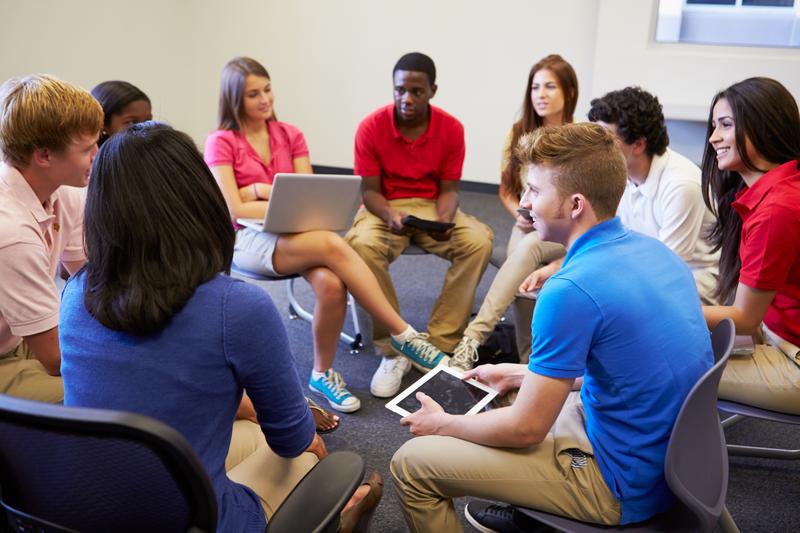While many tend to believe that extracurricular activities refer solely to sports such as football and baseball; in reality,
extracurricular activities come in a variety of shapes and sizes, whether that be joining a club at school or interning with a large firm. It is important to consider extracurriculars as activities that can help educate a student beyond the confines of a classroom.
Extracurricular Activities to Try
While sports can be excellent extracurricular activities, chess, creative writing, debate, playing an instrument, coding, performing, drawing, etc are all skillful ways a student can intellectually develop.
Debate
One compelling example of an extracurricular that thousands of students across the United States pursue is debate, which stimulates students’ analytical thinking and
public speaking skills. Debate is all about formulating arguments on a given a topic. By joining a debate club, students can explore various forms of public speaking and learn important soft skills such as resilience and teamwork along the way.
Beyond gaining new skills, students will become aware of diverse perspectives on broad issues and be able to think critically to defend arguments. As a result, debate can be an excellent way for students to learn more about themselves and stand out from their peers, who may have less developed argumentation and public speaking.
Creative Writing
Creative writing can be an excellent extracurricular that could stem many other interests. Whether it be writing short stories, books, or just jotting down ideas in a diary,
creative writing serves as a valuable tool for students to express their thoughts and feelings, as well as let their emotions manifest as characters in a creative composition.
In addition to developing writing skills, joining a creative writing class, club, or activity enables students to build upon both their artistic and analytical skills. In some settings, writing involves multiple people, which would promote collaboration among students. Due to the
broad range of writing from academia to fiction novels, students can delve into writing at any level, which would help them stand out from their peers regarding the admissions process.
Coding
Another such activity students can pursue is coding. With there being a plethora of coding competitions, hackathons, and opportunities to explore programming,
learning how to code is an important technical skill that students can use in the future whether it be in their careers, entrepreneurial endeavors, or personal life.
In addition to being helpful to students in the future, coding can set students apart in the college admissions process. Because the world of AI and machine learning is constantly growing, the scope for technology-oriented jobs is increasing, and being equipped with coding skills before even going to college could differentiate a student.
Gardening
As “go green” and sustainability efforts increase in tandem with an increase in oil extraction and combustion of fossil fuels, gardening can be both a useful and
environmentally proactive skill. By planting trees and other plants, we can promote photosynthesis, which will mitigate global warming.
Gardening can be a valuable catharsis for students as well as prove helpful to them in realizing the importance of sustainable lifestyles. By learning gardening, students can grow gardens and have a positive impact on their local community, which will certainly help students grow as leaders in their community and on their college campus in the future.
Theater
Another extracurricular activity that could help students is theater, especially if a student is interested in going into the arts in the future. Whether it be
teamwork, resilience, or consistency, theater helps bring out various positive characteristics in students.
Apart from being a great extracurricular activity to put on one’s resume, theater serves as a “bridge” extracurricular, which allows students to use their experience in theater to help them grow in other activities. Because the film and play industries are heavily competitive, preparing to go into those careers warrants experience, and participating in school plays, competitive theater, etc shows that students are prepared for their future.
Career Prep
Additionally, students can participate in career and technically oriented extracurricular activities by joining clubs such as DECA, BPA, HOSA, or local programs sponsored by companies that a student may want to work for in the future. By participating in such programs,
students can learn what types of careers best fit them, while also competing in a secure environment, where students can see where they stand among their peers.
Students may even be able to gain leadership roles at their school for certain clubs, which shows initiative and future potential.
There is a wide variety of activities that students can consider apart from sports that will both prepare them for their future and show colleges that they are ready for higher education. By pursuing projects and interests outside of a school setting, students embrace their personal interests and learn more about themselves, which
prepares them to be stronger leaders on a college campus or workplace.
